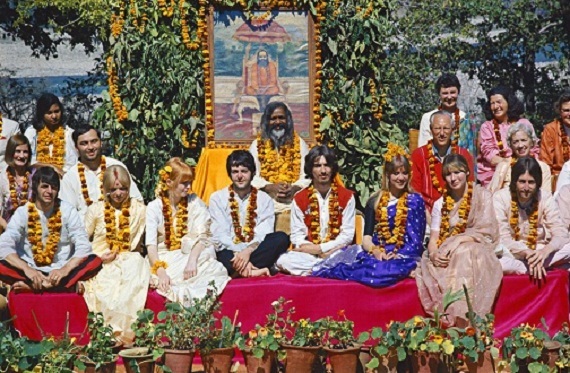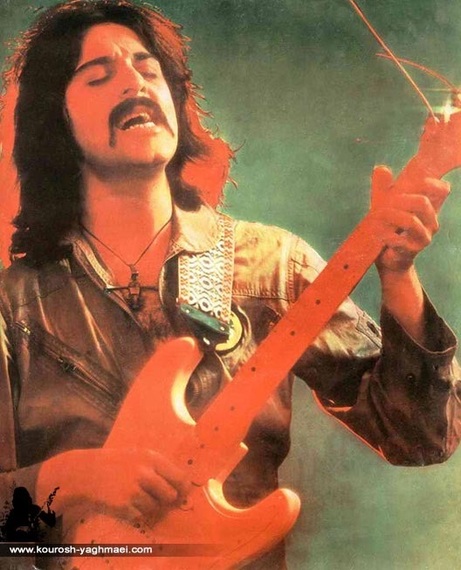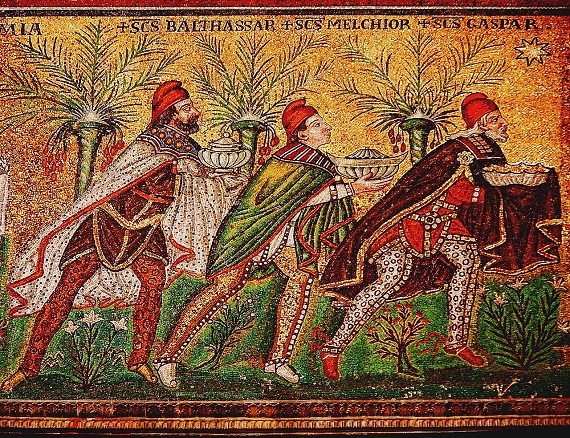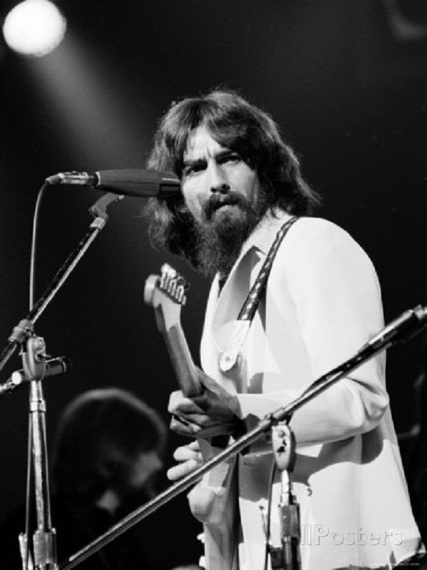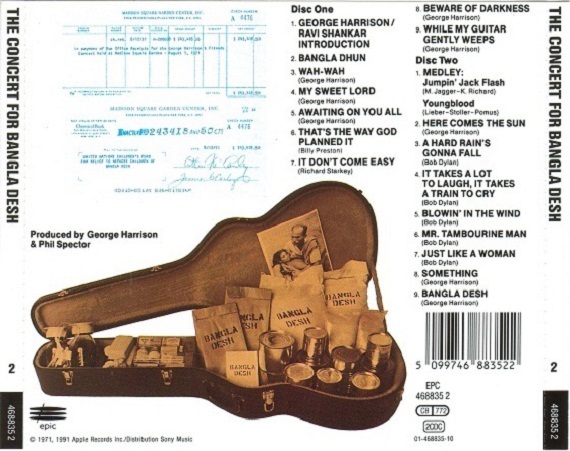Mid-late 1960s: West goes East. While it was John Lennon, Yoko Ono and Canada that initiated Rock n' Roll Diplomacy, George Harrison was the first to apply that concept to music.
Through Harrison, The Beatles were the first Western Rock band to use non-Western instruments. Having been intrigued by the sound of a Sitar during the filming of Help!, Harrison went on to learn how to play it with Ravi Shankar. Harrison would first play the Sitar on the introduction to the ballad "Norwegian Wood" (1965) - prompting the Rolling Stones to follow suit in "Paint it Black."
While playing short Indian instrument passages on Beatles tracks, such as "Tomorrow Never Knows" and "Strawberry Fields Forever", Harrison went one step further by convincing his band-members to expand their repertoire by including tracks in which he sang to Indian instruments: from the cynical "Love You To" (1966), to the cosmic "http://www.thebeatles.com/song/within-you-without-you" (1967), and the transcendental "The Inner Light" (1968).
Harrison would also produce, in Bombay and London, Wonderwall Music, the soundtrack of the homonymous movie, combining Indian compositions with psychedelic Rock. Thereafter, during the Beatles' post Sergeant Pepper depression, Harrison would lead the band to the Maharishi Mahesh Yogi's Himalayan ashram, in the foothills of the Ganges, to study transcendental meditation. There, they would conceptualize the Beatles' third and last segment (1968-69): The White Album, Let it Be and Abbey Road, during which time Harrison's Electronic Sound would also pioneer in the field of electronic music.
Early 1970s: East goes West. In an early childhood haze, I recall watching on Iranian television the dozens of emperors, kings and queens, sheikhs, emirs, sultans, presidents and heads of governments gathering in the ruins of Persepolis to commemorate the Iranian Empire's 2500th anniversary.
Closer, in the streets, I also remember Western youth's shadows, bound for the Himalayas, crossing Tehran - in Western Asia, the land of prophets. In their quest for cosmic conscientiousness, these Hippies moved along the ancient trading and cultural crossroads, the Silk Road, ascending snowy mountains, before descending to flowery hills in their Oriental garb. In cross-pollination, Iranian youth would in turn metabolize Western culture.
One such example was 1970s king of psychedelia, Kourosh Yaghmaei, whose guitar gently wept to Harrison's. Guitar, the very instrument symbolizing Western culture, the close cousin of Sitar (meaning three-strings in Persian) played in Western Asia for millennia.
Millennia ago: West and East meet. While a visionary, Harrison was nonetheless following in the chronicle, as old as recorded history itself, of bridging West and East. The Silk Road tread by Beatles' contemporaries, be them Cat Stevens/Yusuf Islam or Timothy Leary - whose US prison escape ended in monarchic Afghanistan - was the path that connected Antiquity's Eurasian imperial continuum of Rome, Iran, India and China. There, Emperor Diocletian encountered the cult of Mithra - the Iranian god born on 21 December to the virgin Anahita - and weaved that into Christianity.
Equally, it was from Zoroastrianism that the Three Magi drew their title - a Persian word, hence the words magic and magician. Earlier, seeking to Hellenize the Iranian Empire, Alexander would tear down cities and massacre thousands, only to fall in love with that civilization. Adopting Iran's imperial protocols, Alexander would dress like the defunct Emperor Darius, marry his daughter, and die in Babylon. In the sixth century B.C., when Iranian Emperor Cyrus liberated the Jews from their Babylonian captivity, the Iranian concepts of paradise (a Persian word), hell, and purgatory were imported into Judaism and, eventually, Christianity and Islam.
Some naysayers may have found the attempts of Harrison and his generation to integrate Eastern musical traditions little more than the dilettantes' Orientalism. Others have been inspired by their desire to transcend cultural boundaries. Either way, Harrison did more than merge musical cultures. Not only was he, from a Western viewpoint, an initiator of World Music, but he also organized the first humanitarian Rock concert.
In August 1971, alongside Ravi Shankar in Madison Square Garden, Harrison organized the UNICEF Concert for Bangladesh, bringing Indian musicians together with Eric Clapton, Bob Dylan, and Ringo Starr to help the nascent Bangladesh's millions of victims. Harrison was once again ahead of his time, reaching out to heal faraway lands through music and paving the way for the Paul McCartney-UN December 1979 Concerts for the People of Kampuchea for the Khmer Rouge's victims. Harrison was thus in the vanguard in an era full of vanguards, opening the door of the "Orient" to Flower Power and the Western Counterculture.
It took Harrison monumental perseverance not only to convince the other Beatles to include Indian instruments in their music, but also to convince the public that cultures can transcend - see harsh criticism in the 1974 regarding his North American tour associating Western and Indian musicians. As with all pioneers though, Harrison's efforts bore fruit. Today, World Music is highly coveted in the West, and humanitarian Rock concerts, including Live Aid and Band Aid, have become the norm. Harrison died in 2001, the UN's Year of Dialogue among Civilizations. The year when the Twin Buddhas - the synthesis of Iranian-Buddhic art - and the Twin Towers - the architectural projection of US capitalism - were destroyed, in the name of ideals, reinforcing the misguided concept of a clash of civilizations. Be it as it may, my childhood in Iran is filled with cultural marriage, memories that will forever accompany me as an early exposure to a popular dialogue among civilizations. As Harrison sang:
We were talking
About the love that's gone so cold
And the people who gain the world
And lose their soul
They don't know, they can't see
Are you one of them?
When you've seen beyond yourself
Then you may find Peace of mind is waiting there
And the time will come
When you see we're all one
And life flows on within you and without you
Let us hope that more George Harrisons bless today's popular culture.
The views above are those of the author's alone, in his personal capacity.

